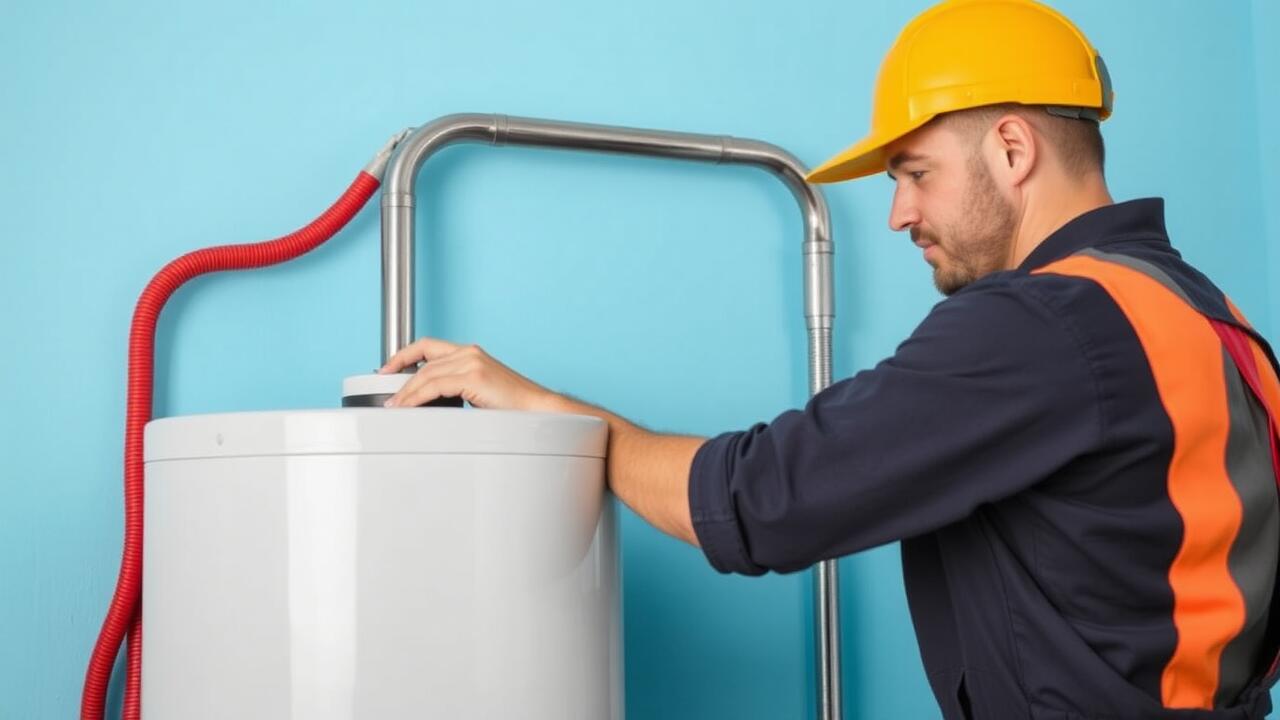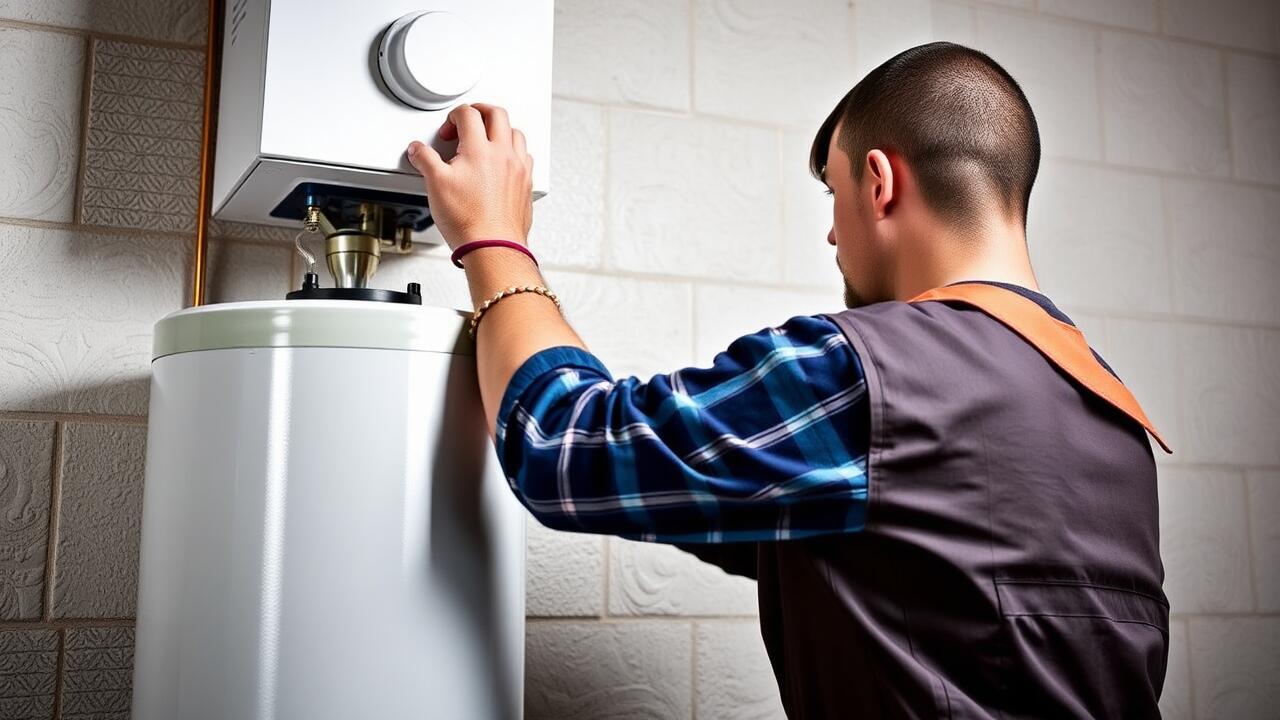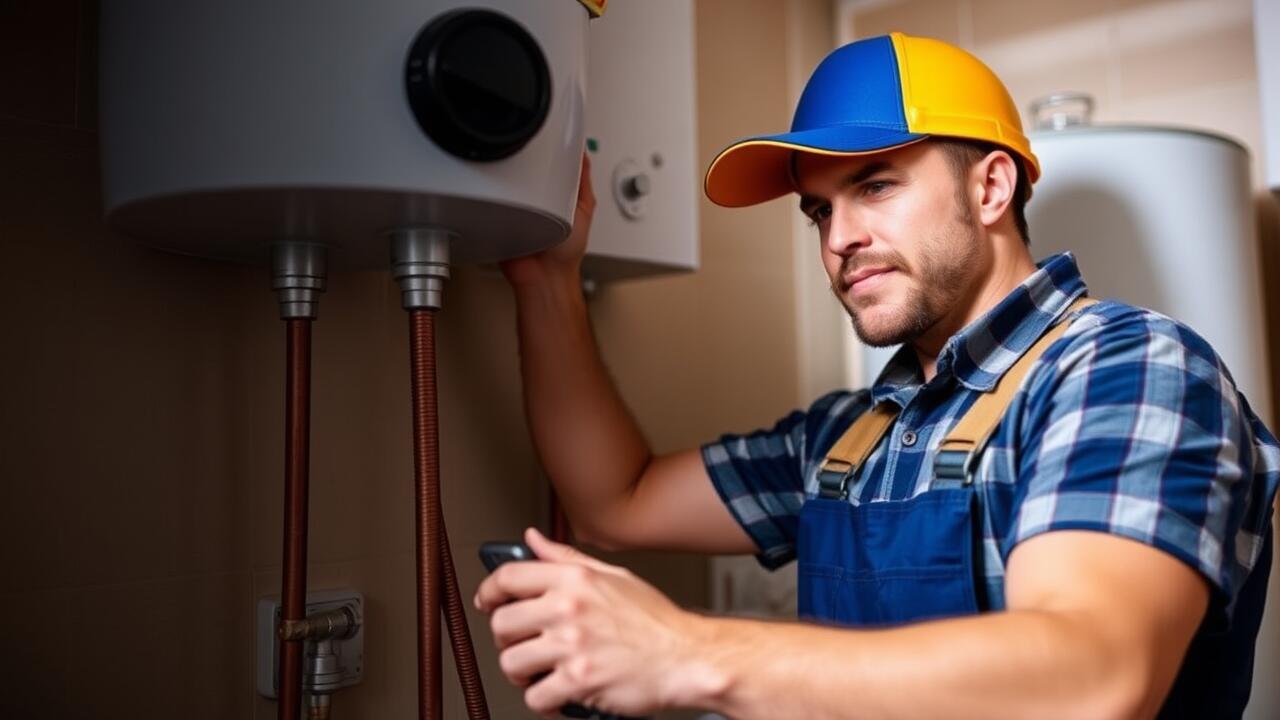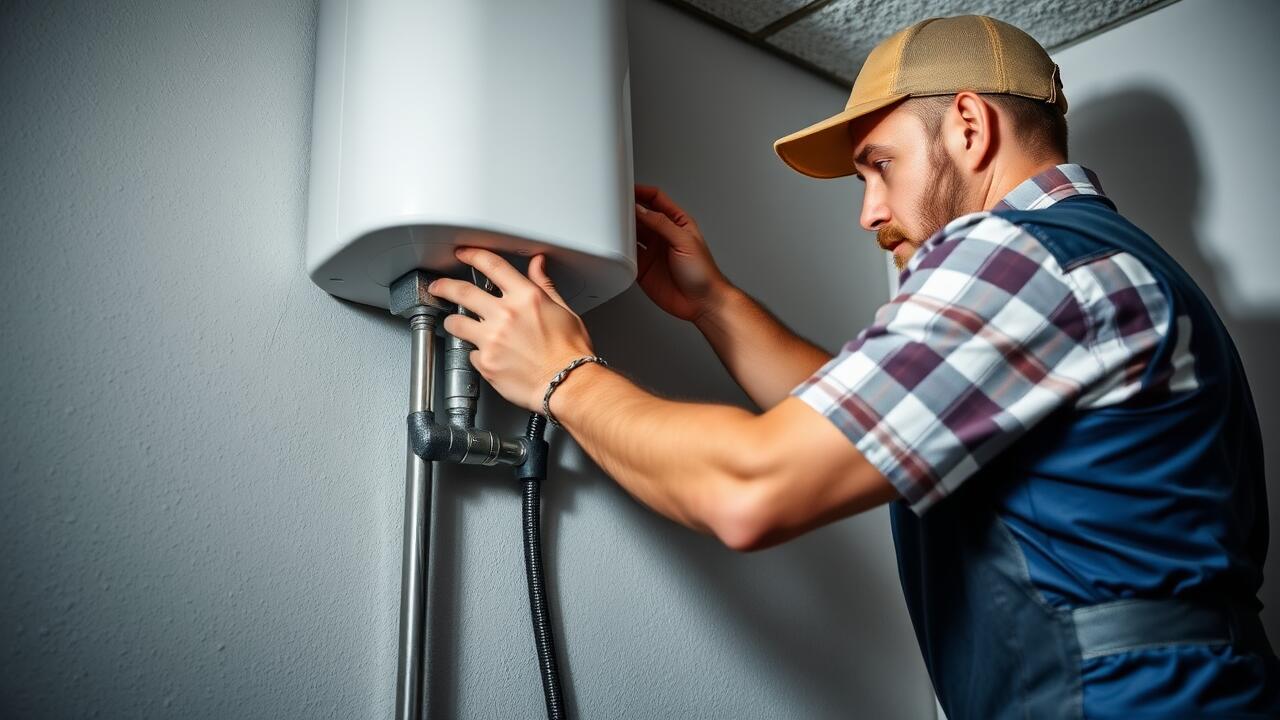
Installation Considerations for Heat Pump Water Heaters
Proper installation of heat pump water heaters requires careful planning and consideration of several factors. Homeowners should evaluate available space, ensuring sufficient clearance for air circulation around the unit. The optimal location should have access to ambient air, as these systems rely on extracting heat from the environment. Additionally, potential noise levels from the heat pump should be factored in, particularly in residential areas where sound may be a concern. Seeking professional assistance for water heater installation in Highland Park, Los Angeles is advisable to ensure compliance with local codes and efficient installation.
Climate plays a crucial role in the effectiveness of heat pump water heaters. Areas with consistently mild temperatures tend to benefit more from these systems since they operate with greater efficiency. Homeowners should also account for the existing electrical infrastructure to support the energy demands of the heat pump. Furthermore, local incentives and rebates may be available for those considering this energy-efficient option, making the initial investment more appealing. A qualified installer will help navigate these considerations and provide insights tailored to specific installation sites.
Factors to Keep in Mind
When considering heat pump water heaters, several factors play a crucial role in ensuring optimal performance and efficiency. The climate in your location significantly impacts the effectiveness of these systems. Heat pump water heaters extract heat from the surrounding air, and colder temperatures can diminish their efficiency. For residences in areas like Hollywood, Los Angeles, where mild winters prevail, these systems can operate effectively year-round. It's also essential to evaluate the available space for installation, as heat pump models require more room than traditional systems to function properly.
Energy efficiency is another critical consideration. Heat pump water heaters are known for their low operating costs, especially in regions with higher energy prices. Homeowners should verify that the unit meets the necessary energy efficiency standards and has an appropriate Energy Star rating. Consulting with professionals for proper water heater installation in Hollywood, Los Angeles, ensures that the system is correctly integrated into the home’s electrical and plumbing systems, maximizing both performance and longevity. Additionally, understanding local incentives or rebates for energy-efficient appliances can provide further financial benefits when investing in this technology.
Maintenance Requirements for Heat Pump Water Heaters
Regular maintenance is crucial to ensure optimal performance and longevity of heat pump water heaters. Cleaning the air filter and checking for any blockages in the system can prevent efficiency losses. Additionally, inspecting the condensate drain for clogs helps maintain proper drainage and prevents water damage. A thorough annual inspection by a qualified technician can further enhance the lifespan of the unit by identifying potential issues early on.
During routine maintenance, it is also important to monitor the refrigerant levels and inspect all electrical components for wear and tear. Keeping the area surrounding the unit clear helps maintain airflow and overall efficiency. For those considering water heater installation in Hollywood, Los Angeles, understanding maintenance requirements is essential for maximizing performance and ensuring a reliable hot water supply. Implementing these practices contributes to a well-functioning system that meets the household's demands effectively.
Keeping Your System Running Smoothly
Regular maintenance is essential for ensuring the longevity and efficiency of heat pump water heaters. Homeowners should clean or replace the air filter at least once a month to promote optimal airflow. Moreover, checking the condensate drain for any blockages is crucial to prevent water buildup and potential damage to the unit. Schedule annual professional inspections to address any underlying issues that may arise over time. A well-maintained system can significantly reduce energy costs and maximize performance.
When considering Water heater installation Hollywood, Los Angeles, it's important to familiarize yourself with the specific maintenance requirements of heat pump systems. Keeping the area around the unit clear of debris can improve efficiency. Owners should also monitor the temperature settings and consider adjusting them according to seasonal changes. Implementing these practices not only enhances the system's functionality but also contributes to a safer and more efficient water heating experience.
Comparing Heat Pump Water Heaters to Traditional Systems
Heat pump water heaters offer significant energy savings compared to traditional systems like gas or electric water heaters. They utilize ambient air to heat water, making them highly efficient, especially in moderate climates. Since they run on electricity, they can also provide additional savings if paired with renewable energy sources. However, their performance may decline in colder regions, which remains a crucial factor in considering their installation.
When evaluating water heater installation in Hollywood, Los Angeles, homeowners often weigh the benefits of heat pump systems against conventional models. Traditional water heaters are typically easier to install and have lower upfront costs, but their long-term energy expenses can be higher. Understanding the specific requirements of each type helps consumers make informed decisions about which system best suits their needs and environment.
Pros and Cons of Each Type
Heat pump water heaters offer several advantages over traditional systems, including energy efficiency and lower operational costs. They transfer heat from the surrounding air or ground, making them an environmentally friendly choice. Homeowners can enjoy savings on energy bills, particularly in moderate climates where heat pumps operate efficiently. Additionally, many models qualify for energy rebates, adding further financial incentives. However, they can require more space for installation and may not perform optimally in extremely cold temperatures.
On the other hand, traditional water heaters, such as tank storage systems, generally have a lower upfront cost and are easier to install. They provide hot water on demand, which may be advantageous for households with higher hot water usage. However, traditional systems can be less energy efficient over time, leading to increased utility bills. Prospective buyers should consider their unique needs and climate conditions before making a decision, and those in need of assistance can explore options like water heater installation Hollywood, Los Angeles, for guidance.
FAQS
What is a heat pump water heater?
A heat pump water heater is a type of water heating system that utilizes electricity to move heat from one place to another instead of generating heat directly. It extracts heat from the air or ground, transferring it to the water inside the tank.
How does a heat pump water heater differ from a traditional water heater?
Unlike traditional water heaters that generate heat using electricity or gas, heat pump water heaters use a heat exchange process to absorb heat from the environment, making them more energy-efficient and cost-effective over time.
What are the installation requirements for heat pump water heaters?
Installation considerations include having enough space for the unit, proper ventilation, and access to a power source. It’s also important to install them in an area where the ambient temperature is suitable, typically between 40°F and 90°F.
How often should I maintain my heat pump water heater?
Regular maintenance is recommended at least once a year. This includes checking filters, inspecting the heat pump, and ensuring that the system is free from debris to keep it running efficiently.
What are the pros and cons of using a heat pump water heater?
Pros include higher energy efficiency, lower operating costs, and reduced environmental impact. Cons may involve higher upfront costs, specific installation requirements, and reduced efficiency in extremely cold temperatures.



